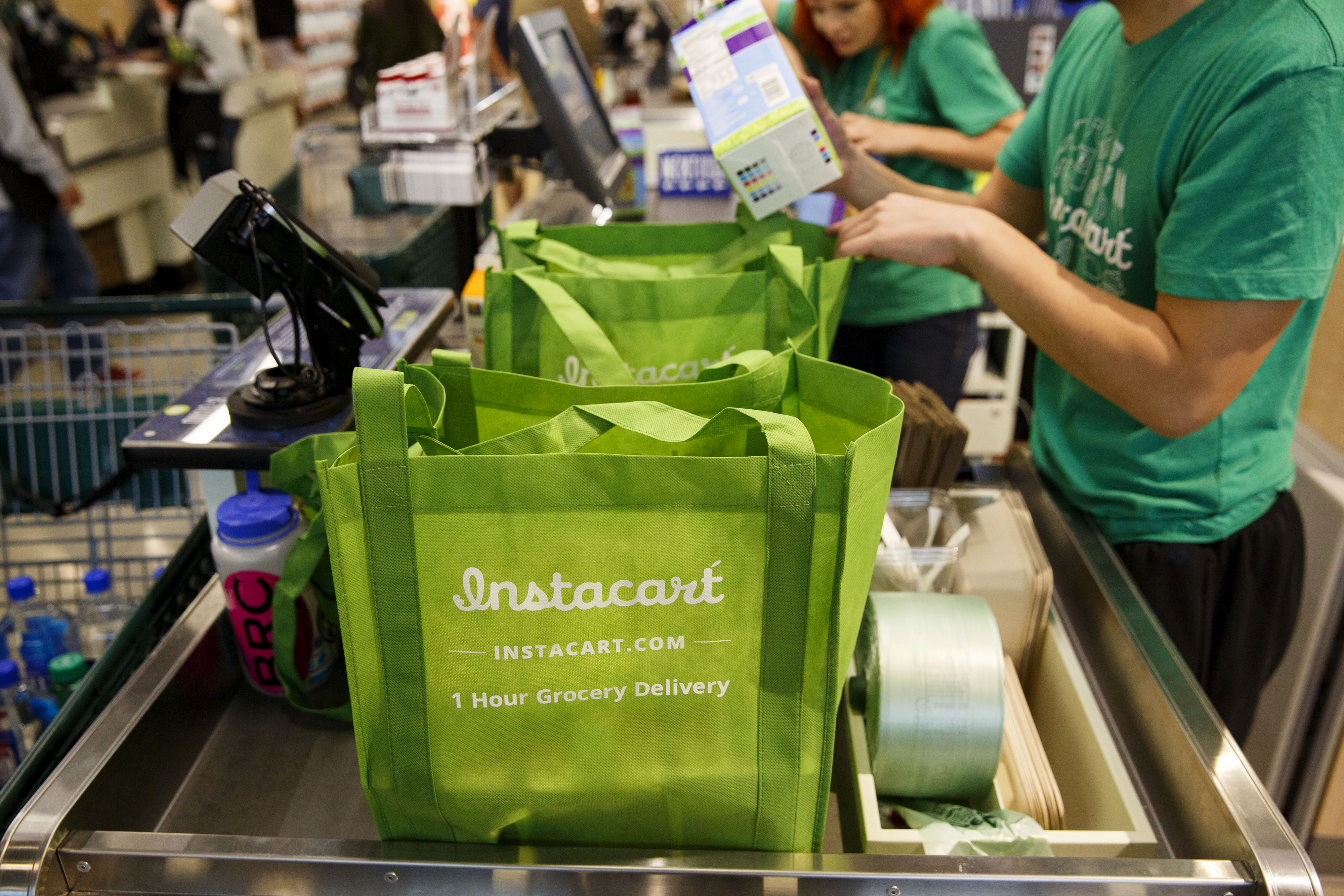Instacart Workers Are Launching a Week of Protest Against the App’s Tipping Policy

Credit to Author: Lauren Kaori Gurley| Date: Mon, 09 Dec 2019 18:20:37 +0000
Instacart workers are ramping up the pressure on the San Francisco-based grocery delivery app, demanding it increase pay with six days of planned action scheduled for next week. More than 300 workers have signed onto the series of microactions, intended to pressure the company to raise the default tip amount from 5 to 10 percent.
Next Monday, Instacart shoppers will kick off their protest by filing a claim with the Department of Labor asking the federal agency to audit Instacart’s financial records and transactions. (In recent years, the company has been accused of misappropriating and altering tip amounts.)
“We are utilizing a multifaceted approach to encourage investigations into Instacart’s wage violations, tip misappropriation, and health and safety violations,” organizers of the protest told Motherboard.
The action arrives at the end of a difficult year for Instacart gig workers. (Roughly 130,000 workers deliver and fill orders for the app nationwide.) Many say their wages have fallen by more than half since the start of the year after a number of changes to Instacart’s pay algorithm. In November, several thousand Instacart workers went on a three-day national strike demanding the company increase its default tip to 10 percent. But rather than listen to workers, days later, the company slashed their ‘quality’ bonus pay, which can account for up to 40 percent of earnings, claiming it did not “meaningfully improve quality” of workers’ service.
Next week, workers will demand the reinstatement of the 10 percent default tip, which would significantly increase their earnings. In 2016, Instacart turned a 10 percent default tip into an intentionally misleading 10 percent service fee that went directly into the hands of the company, not its workers. After a series of changes, the default tip for users of the app now sits at 5 percent, with a 5 percent service fee that goes directly to the company.
In addition to filing an audit claim with the Department of Labor, Instacart workers will use their week of action to make phone calls to state and federal legislators demanding they pressure Instacart classify its workers as employees and hold it accountable for paying the minimum wage, reimbursing workers for expenses accrued on the job, and providing other benefits that employees typically receive.
“Our misclassification coupled with insurmountable pay cuts have resulted in Shoppers becoming trapped in cyclical poverty and reliant upon social safety nets to pick up our employer’s tab,” organizers of the Instacart action said.
Workers will also file a wage claim for their misclassification as independent contracts, contact the Occupational Safety and Health Agency (OSHA) about work injuries, and deliver personal notes to the CEOs of six partner stores, including Wegmans, asking them pressure Instacart to provide to minimum labor standards.
“We continue to hold partner stores accountable for their collaboration in our exploitation,” organizers told Motherboard. “We will be delivering letters from workers along with a history of our grievances to the executives teams of dozens of Instacart’s retail partners.”
In recent weeks, Instacart workers have told Motherboard that their earnings often amount to less than minimum wage and that they’re struggling to pay for necessities like food, utilities, and prescription medication. Several workers described accepting their Thanksgiving dinners and Christmas gifts from the Red Cross and churches.
Do you work for Instacart and have a story to share about your working conditions? We'd love to hear from you. Please contact Lauren at lauren.gurley@vice.com or on Signal 201-897-2109.
One Instacart shopper, a single mother in the Seattle suburbs told Motherboard she recently had her water shut off, after falling behind on her bills.
“The pay is an ongoing problem. I have a kid and my water is getting shut off. They took away our quality bonuses," she said. "For me, that was $30 bucks a week, and $120 a month is how much my water bill costs. It’s like ‘cool thanks, Instacart.’”
Many who rely on Instacart as a primary source of income say they are trying to find employment elsewhere, but it’s difficult to find time to do so when they need to work constantly to pay bills. While there’s no demographic data on shoppers, many of those who have reached out to Motherboard are single mothers and live in economically depressed parts of the Midwest and South.
Instacart did not immediately respond to a request for comment.
This article originally appeared on VICE US.